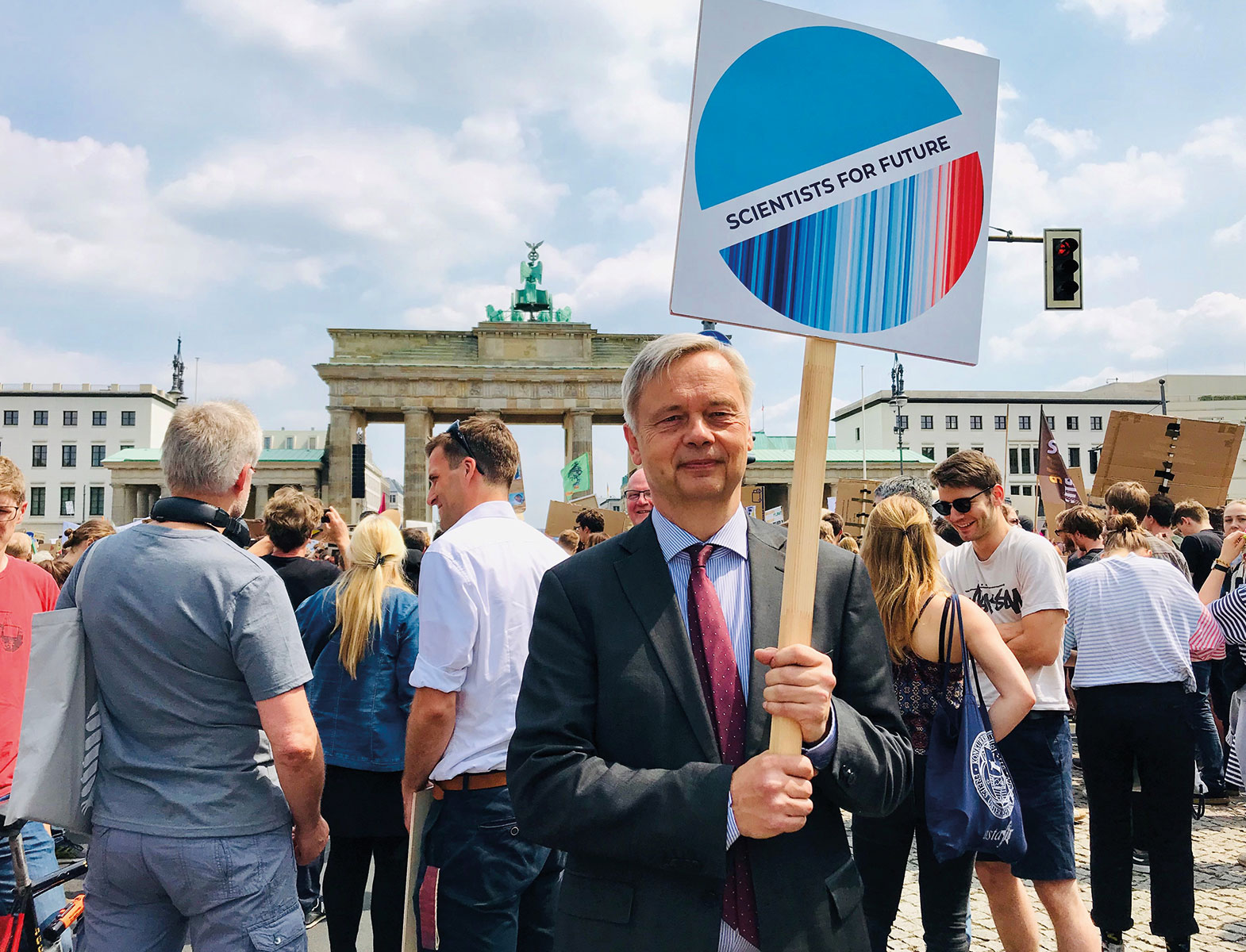You initiated the Climate Change Center Berlin Brandenburg (CCC) together with other research institutions in Berlin and Potsdam. Why is CCC especially important for you?
As a university of technology, TU Berlin will have a very substantial contribution to make toward the success of the Climate Change Center Berlin Brandenburg. As one of the major driving forces for technology development in the region, we are also strong performers in climate-related research in a range of fields. In this light, our commitment to the Center was inevitable. The solution-oriented approach pursued by the future Center chimes with our general approach. This is exactly the kind of expertise we will contribute—with “Solutions for Today” as our guiding mantra.
Academic entrepreneurship, innovation, and transfer from research to practice are strengths we are known for. But the issue of the climate is so broad and so complex that we can only tackle it effectively in an alliance with many partners from the region. What we are striving for here is nothing less than a globally recognized center of excellence linking and networking practically all the disciplines with something to contribute. As well as our expertise in the natural sciences, technology and engineering, research in the humanities and social sciences and disciplines such as, say, agricultural science are also relevant.
Which research fields at CCC can TU Berlin support with its expertise in research, teaching, and transfer?
Of the four solution areas that have been designated to combine research at CCC (Society, Nature, Technology, and Urban and Rural), the last two are particularly significant for us. Our research covers a broad spectrum of themes—from batteries research to urban planning. We have excellent economists exploring the multifaceted issue of sustainability, biotechnologists developing construction materials derived from fungi, and experts starting to think in the direction of environmental humanities.
We can also extend the experience we are amassing in the new degree program “Design & Computation” to climate-related topics. This is an interdisciplinary, research-oriented master’s program established jointly by Berlin University of the Arts and Technische Universität Berlin. In the course of their studies, students interrogate the relationship between the individual, technology and society at a very fundamental level—exactly the relationship that needs to be rebalanced for us to tackle climate change successfully.
Our targeted support for start-ups is a further element TU Berlin will bring to the table at CCC to enable ideas that emerge in the Center to be rapidly brought to fruition.
What tasks do you see research addressing, and what function do you see research fulfilling, in relation to sustainability and climate protection in the 21st century?
The 20th century was characterized by the tremendous acceleration of technological progress and prosperity in the Western world. But it was also a century marked by negative aspects of technology, by the abuse of technology to wage war and wreak destruction. And the problem of global inequality remained unresolved.
Since its foundation, TU Berlin has been committed to advancing science and technology and their peaceful use for the benefit of society. In the 21st century, centrally important issues for humanity and for world society are moving ever more strongly into the foreground. Much hope is resting on science and on what research can contribute to addressing the existential challenges we face.
I believe that this hope is justified, and I would reformulate this hope as a challenge that research must address. We can indeed achieve a lot, especially when we researchers come together and pool our efforts. CCC represents an innovative approach to building a broad and visible alliance that spans disciplines and can engage in dialog with external partners in civil society, politics, and business to work together for change. The positive reactions to our initiative to set up CCC confirm that many of my academic colleagues are interested in joining forces with us.
The interview was conducted in September 2020.
Bild: Susanne Cholodnicki / TU Berlin


